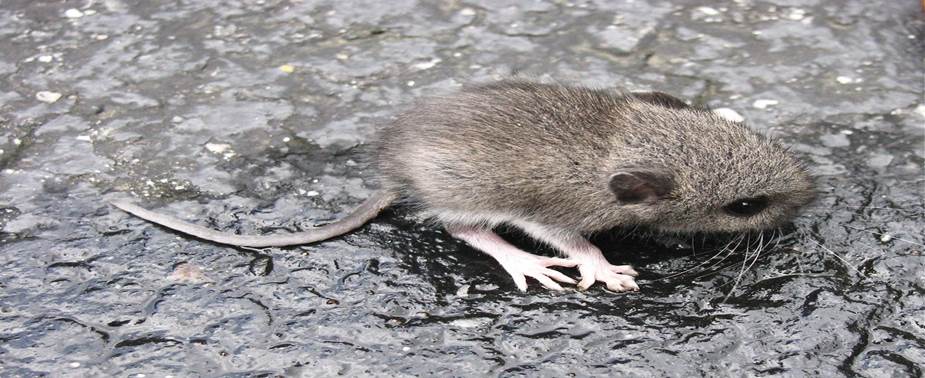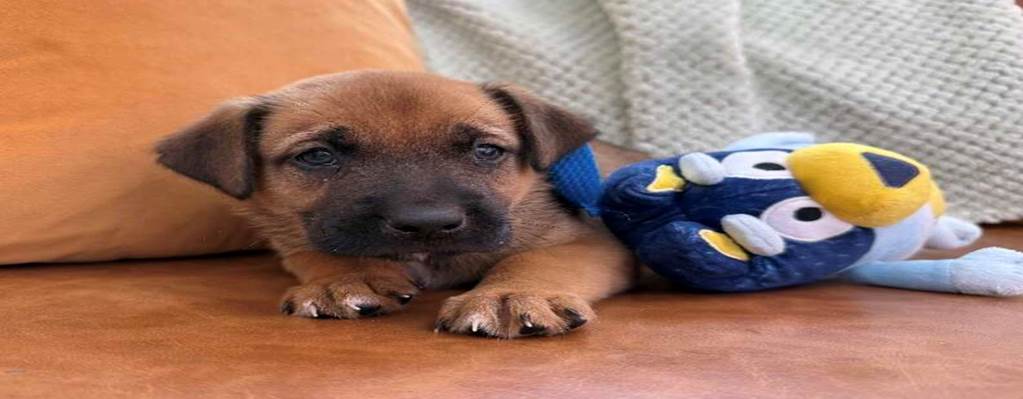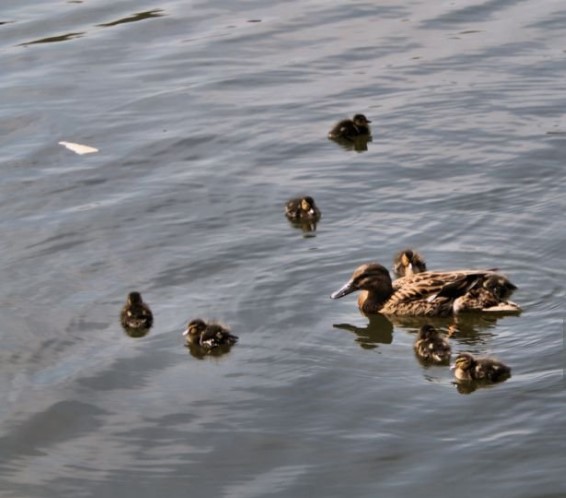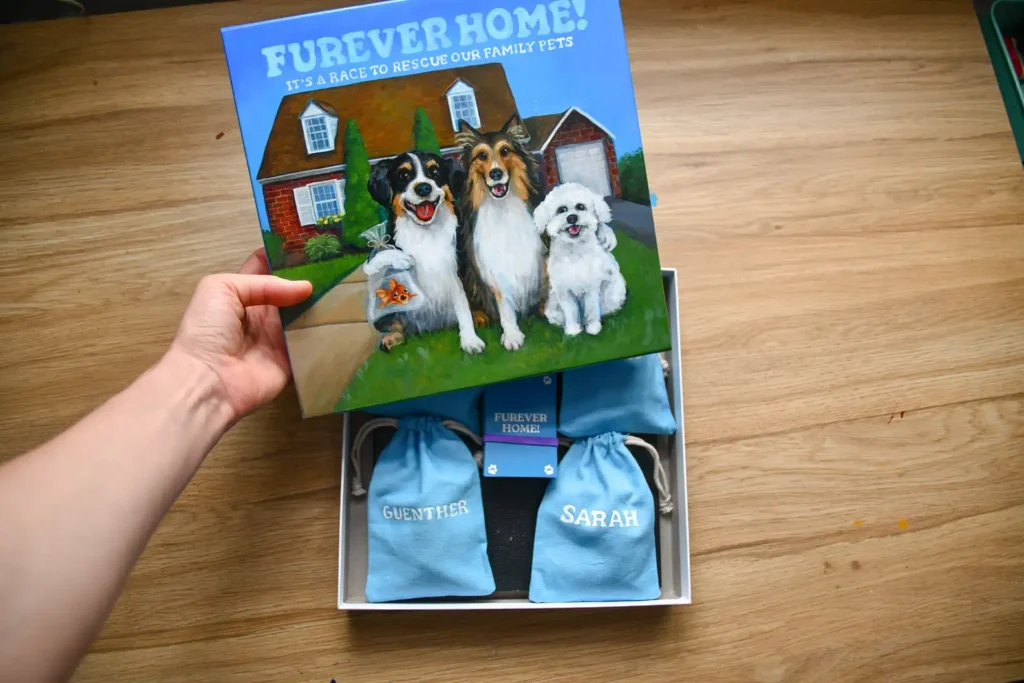The Calico Who Chose Compassion: A Stray Delivers Her Five Kittens on the Warmest Doormat
Lena lived on the fifth floor of the old brick apartment building, a place where neighborly contact usually consisted of a quick nod by the mailboxes. Her life was predictable, insulated, and quiet. That changed on a Tuesday evening when the chill wind of early spring whipped through the central hallway, bringing with it a raw, desperate kind of sound. It was just after 10 p.m. when Lena stepped out to check if the laundry machine was free. The hall was tiled in cold, institutional white and grey, and under the dim emergency light near the fire exit, something was moving on her doormat. It wasn’t a piece of wind-blown trash. It was a cat—a scruffy, heavily pregnant calico female whose multicolored coat of black, bright orange, and pure white patches was matted and dusty. The cat wasn’t just resting. Her body was tense, her flanks were heaving, and she was clearly in distress. As Lena watched, horrified, the cat let out a low, guttural moan—the sound of intense, unmanageable pain. Lena realized with a sickening jolt that the stray had chosen her doorway, the last refuge she could find, to give birth. Lena’s immediate panic was rooted in the harsh reality of the environment. The ceramic tile of the hallway floor was icy, unforgiving, and the spot offered zero privacy. Any resident returning home could startle the desperate mother, and the single security camera aimed at the emergency exit offered no protection from the wind or the cold. The labor was intense, the cat, whom Lena silently named Sol for the wild splash of color in her fur, was trembling uncontrollably. Seconds later, the first kitten arrived. It was tiny, wet, and utterly silent. Sol, exhausted, gave a weak lick before collapsing again, her large, golden-green eyes fixed on Lena with a pleading, pain-filled stare. Lena knew there was no time to call animal control or a shelter; the next kitten would arrive any minute, and leaving Sol exposed was a death sentence for the family before it was even complete. Her decision was instantaneous and risky. She knew moving a cat during labor was dangerous, but the cold was a greater threat. She backed slowly into her apartment, retrieved her old, sturdy dog carrier, and lined the bottom with the warmest fleece blankets she owned. She added a shallow dish of water and a handful of dry kibble. When Lena returned, the second kitten was partially born. With the utmost care, moving slower than she ever had in her life, Lena gently nudged the large carrier up against Sol’s trembling body. She didn’t try to touch the mother, but instead, spoke in a low, continuous murmur, promising safety. “It’s soft, Sol. It’s warm. Just a little further.” Perhaps sensing the relief of the fleece, or perhaps too exhausted to fight, Sol slowly dragged her heavy body and her two newborns off the cold tile and into the dark, protective cocoon of the carrier. It was a transfer of mere inches, but it felt like miles of distance from danger. The remaining delivery took place over the next hour in the quiet darkness of Lena’s guest bathroom. The soft cotton and the enclosed space seemed to instantly calm Sol, allowing her instincts to take over. She was now protected, warm, and finally safe. When the last frantic mewing subsided, and the room fell silent again, Lena peeked inside the carrier. Sol looked up, her expression completely changed. The fear was replaced by a profound, heavy-lidded relief and the fierce, protective concentration of a new mother. The whole family was miraculously healthy. There were five of them: a tiny tuxedo kitten with a white bib, a pure orange tabby who looked perpetually cross, a sweet grey blur with almost no markings, and two more little calico girls that resembled their mother. The contrast between the rough street life and the new reality was stark. The kittens, no bigger than Lena’s palm, were a mesmerizing kaleidoscope of colors, a beautiful gift delivered right to her doorstep. In the days that followed, Lena did little else but watch. The images she captured were a testament to Sol’s incredible maternal instinct. Sol was constantly cradling her brood, her large body a perfect, warm enclosure. Her chin would rest lightly on the pile of wriggling life, her eyes often closed in exhausted contentment, occasionally snapping open to check on a wayward paw. The kittens were a constant, tiny vortex of sound and movement. Lena often watched as they slept, huddled together in a vulnerable, tight pile, their tiny pink noses buried in each other’s fur, safe beneath the bulk of their mother’s body. Sol would watch the kittens nurse, her expression soft, almost peaceful, occasionally giving one an exhaustive, full-body cleaning that threatened to tumble the whole pile over. Lena had initially planned to contact a local no-kill shelter after the delivery, but watching Sol, watching the way the little black patch on the tuxedo kitten’s ear matched a similar spot on Sol’s shoulder, she knew. This wasn’t just a rescue; it was a calling. The life that had stopped on her cold, lonely doormat was now thriving in the warmest corner of her home. Sol hadn’t just found a temporary refuge; she had chosen a family. Lena knew she couldn’t simply let them go. The family that arrived on her doorstep was going to stay. The long night of fear and cold was over. All that remained was the quiet purr of a mother and the soft, rhythmic suckling of five healthy newborns, safe in the sanctuary their neighbor had created.








